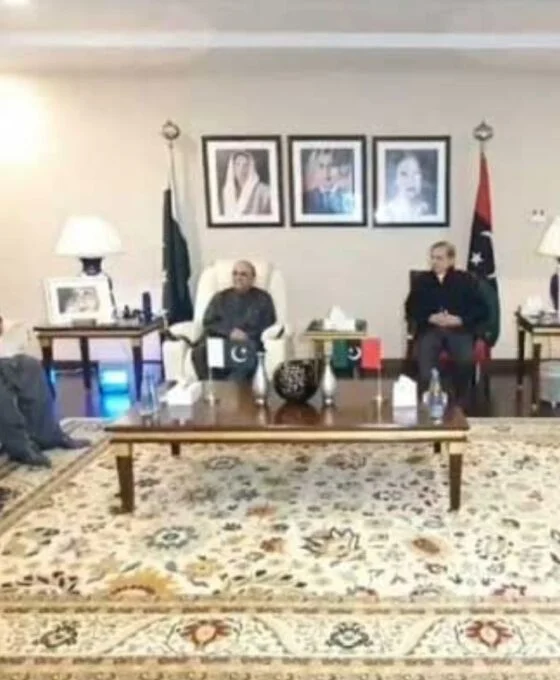The Pakistan Muslim League-Nawaz (PML-N) and the Pakistan Peoples Party (PPP) are exploring the prospect of a power-sharing arrangement that could see prime ministers from both parties alternating in office for specified terms, sources reveal.
In a recent meeting at Bilawal House in Lahore, high-level representatives from both parties convened to discuss post-election strategies and the potential formation of a coalition government. Among the key topics deliberated was the notion of dividing the prime ministerial tenure between the PML-N and PPP, with each party assuming leadership for a designated duration.
This proposal echoes a similar power-sharing model previously implemented by the PML-N and the National Party (NP) in Balochistan in 2013. During that tenure, chief ministers from both parties alternated in office, each serving half of the five-year term.
The meeting at Bilawal House saw a commitment from both sides to prioritize national interests and collaborate towards political stability in the aftermath of the recent general elections. Notable attendees included PPP-Parliamentarian President Asif Ali Zardari, PPP Chairman Bilawal Bhutto Zardari, and former Prime Minister Shehbaz Sharif representing the PML-N.
In a joint statement issued following the meeting, leaders from both parties emphasized their dedication to steering Pakistan towards prosperity and resilience, affirming their commitment to fulfilling the aspirations of the electorate.
Behind closed doors, the PML-N extended a formal offer to the PPP to join forces in forming a coalition government. Additionally, the PML-N leadership briefed the PPP on ongoing discussions with independent lawmakers and MQM-Pakistan.
However, discussions encountered a notable point of contention regarding the allocation of the prime ministerial role. While the PML-N advocated for retaining the prime ministerial position, the PPP asserted that Bilawal Bhutto Zardari had already been nominated by the party’s Central Executive Committee for the role.
To reconcile this divergence, leaders from both parties explored the possibility of implementing a rotational prime ministership, allowing each party to assume leadership for a defined portion of the five-year term.
In a parallel development, the PML-N and MQM-Pakistan also engaged in discussions on political cooperation for future governance. PML-N Supremo Nawaz Sharif and MQM-Pakistan leader Dr. Khalid Maqbool Siddiqui led their respective delegations in the talks, with both sides expressing a commitment to collaborate for the nation’s benefit.
Despite initial reports suggesting talks on government formation, MQM-Pakistan Convener Khalid Maqbool Siddiqui clarified that discussions on this matter did not occur during the meeting. He also dismissed rumors regarding demands for the Sindh governorship in exchange for support to the PML-N.
Meanwhile, PML-N leader Nawaz Sharif engaged in a telephonic discussion with JUI-F chief Maulana Fazlur Rehman, exploring the political landscape and coalition government formation efforts at the national and provincial levels.
As deliberations continue, the political landscape in Pakistan remains fluid, with stakeholders navigating intricate negotiations and strategic alliances in the pursuit of stable governance.











